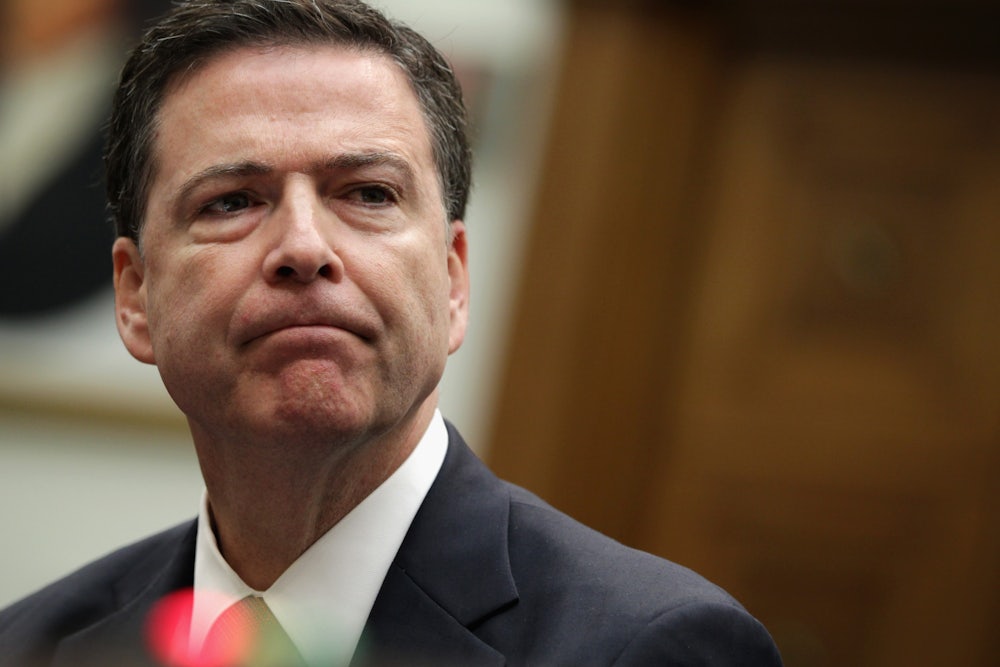By his own admission, Jim Comey’s public tongue-lashing of Clinton was extraordinary; the kind of statement you’d expect from a prosecutor in the wake of an indictment, rather than from an investigator recommending against prosecution. “In our system, the prosecutors make the decisions about whether charges are appropriate based on evidence that the FBI helps collect,” Comey said. “Although we don’t normally make public our recommendation to the prosecutors...in this case, given the importance of the matter, I think unusual transparency is in order.”
By all outward appearances, Comey’s statement was inspired less by a deep commitment to the public’s right-to-know than by a territorial instinct for bureaucratic turf protection: giving voice, perhaps, to FBI officials who feel the State Department ran roughshod over them; insulating the Bureau from inevitable allegations that its investigation and attendant recommendation were fixed.
The result is a public relations disaster for Clinton: Republicans will air footage of Barack Obama’s FBI director (a Republican, but an Obama appointee nonetheless) calling Clinton reckless on camera thousands and thousands of times between now and November. Surely some Clinton supporters, and people in Clinton’s orbit, believe this is extraordinarily unfair.
Former Democratic DOJ aide Matthew Miller put thus:
Absolutely outrageous presser by Comey. DOJ/FBI is supposed to speak in court. If it won't make statements in court, it shouldn't make them.
— Matthew Miller (@matthewamiller) July 5, 2016
And to this I say... sort of? As a rule, bureaucrats probably shouldn’t make potentially history altering pronouncements as salvos in their turf wars or to insulate themselves from criticism. But from Comey’s perspective, it’s hard to see what other choice he had. This may have been the least damaging way to contain the fallout of the email investigation—for everyone involved. And the mess only exists because Hillary Clinton and her team put their near-term interests ahead of basically every other consideration. This is the risk you take when your lodestar for official conduct is whether the thing you want to do is plausibly legal.
